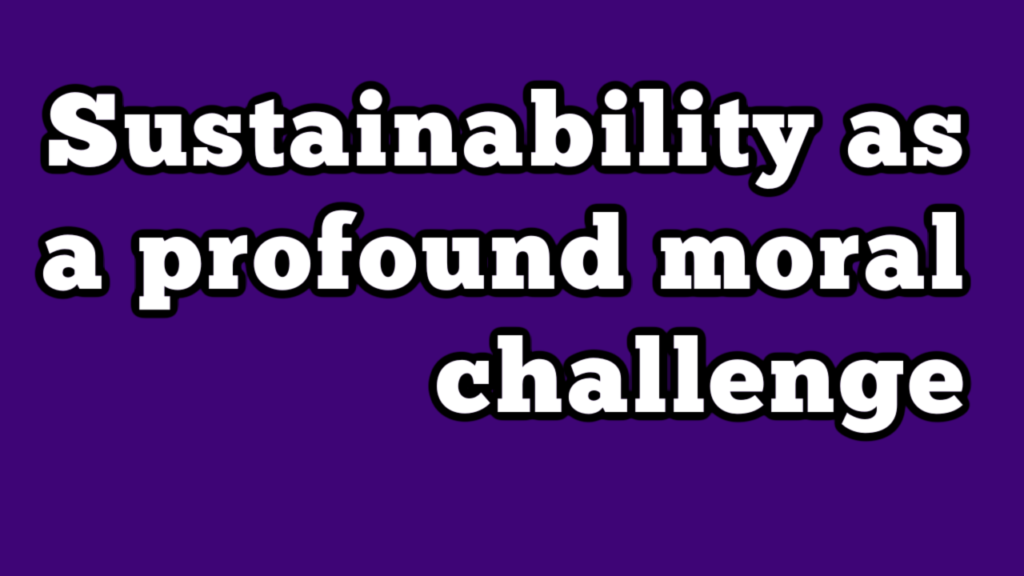Sustainability as a profound moral challenge

Here’s a note from Duncan Austin:
Maybe the difficult truth is that sustainability just is not much of a market opportunity, but rather a profound moral challenge.
And perhaps the increasingly desperate insistence that sustainability be a market opportunity is merely the means to fend off acceptance of the moral obligation.
It is becoming too late in the day to maintain the pretence that a Voluntary Market-Led approach to sustainability can achieve enough change, fast enough – for multiple social and ecological issues. Persisting with Voluntary Market-Led tactics – seeking the perfect ESG rating, formulating the ideal corporate disclosure framework, announcing the most eye-catching pledge etc., – is simply doubling down on avoidance of policy, behavioural and cultural changes now urgently needed.
It is to keep believing that markets can solve problems markets are still organized not to recognize. Markets ‘see’ prices, but – just one example – the World Bank reports less than 4 percent of global carbon is yet priced sufficiently. So-called ‘Mr Market’ has no inkling there is a climate crisis because we haven’t yet told him in the language he understands!
Like many, I hoped our sustainability challenges might yield to enlightened, voluntary actions within unchanged markets, but it is clear (and has been clear to many others for much longer) that the very mindset that casts sustainability primarily as a new ‘market opportunity’ is central to our unsustainability.
We are effectively trapped in the ‘double bind of externality-denying capitalism’ (see image). In continuing to resist solutions that might be costly or growth-detracting, we pursue with increasing urgency ‘win-win’ solutions compromised by rebound and backfire effects. At best, these foster a dangerous complacency that sufficient progress is under way. At worst, they aggravate the situation by constituting brand new ways by which we accelerate transformation of the matter and energy of the world, which is the root cause of ecological crisis.
Markets can be enormously beneficial, but – remember the theory – *only* if all costs are recognized. If that is not true, as today, then however ‘generally accepted’ profit and growth figures might be, they are not ‘fully costed’. Indeed, the flaw in our socio-economic system in a nutshell: our ‘generally accepted’ profits are not fully costed. Is any company in the world yet reporting a fully costed profit? If reported profits are not fully costed, do we want more profit or less? Who knows?! Ditto for ‘economic growth’.
In continuing not to properly internalize large and known externalities – ‘consequences’, in plain English – the capitalism we currently practice and so daily reinforce is externality-denying in character. It is innately extractive as a whole system. No ESG rating or data initiative or voluntary pledge can overcome that fundamental problem or is really trying to. Policy and moral leadership – both costly and effortful, unfortunately – just might.
